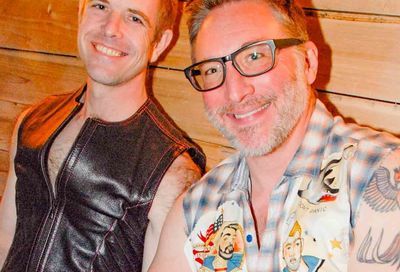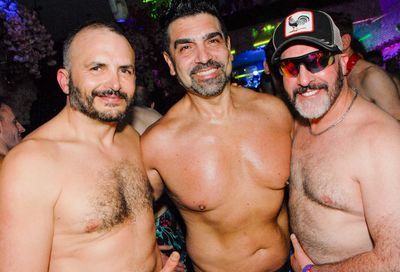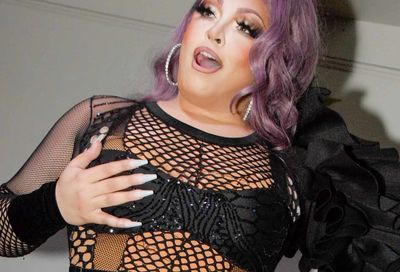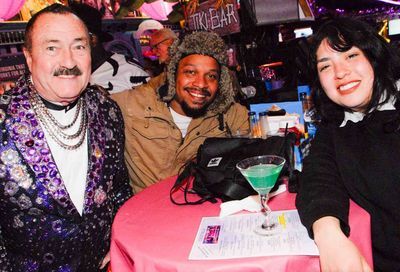Freakanomics evaluates the peceived wealth of gay men, and examines the earning and spending power of LGBT households
Economist Stephen Dubner used his recent Freakanomics podcast to ask, “Are Gay Men Really Rich?“
Back in October, Dubner’s fellow economist, Steve Levitt, attempted to rationalize how one might go about choosing a hometown. He explained that “amenities,” the kinds of things that people were willing to pay for, were key to an area’s appeal. Levitt explained that places which had lots of amenities in a condensed area tended to be more expensive. He said that, in general, childless couples engaged in some self-selection based on amenities that matched their lifestyles. Then, he added:
“There’s been some interesting research done on homosexual couples and where they tend to live. They tend to be more affluent than the typical person, and they tend to like different sets of amenities, and not have as many kids. And, it turns out, if you want to find out where all the nice places in this country are, you just go to the places where the homosexual couples end up. Because, they tend to be concentrated in places where everyone else is willing to pay a whole lot of money to go live in.”
A Freakanomics listener asked this month: What it is about gay culture and gay men that allows them to live in “very well-kept, expensive and highly sought-after” neighborhoods in America’s largest cities.
Dubner’s podcast began with the commonly held beliefs that, because men in general tend to earn more money, two men coupled together will therefore have higher earnings. Dubner noted that, inversely, lesbian couples tended to have lower-than-average household incomes.
He then interviewed Lee Badgett of The Williams Institute, who indicated that gay men may be reaping the economic rewards of having higher levels of education:
“One possibility is, a gay person says, ‘Well, I know I’m going to face some stigma and discrimination in the labor market. Maybe my best defense against having an income disadvantage is to get a lot of education.‘”
Another reason given was that gay men tended to spend less on raising children than heterosexual and lesbian couples. Perhaps not surprisingly, Dubner conveyed data that showed same-sex couples tended to go out shopping more than heterosexual counterparts, and with pet care products specifically, gay households spent 50% more:
“So, if you’re a dog, and you want to be pampered, having gay parents seems to be a good idea.”
However, Dubner spent the second half of his Freakanomics show examining the source data which has led to these broad claims about LGBT economics. According to his findings, the data is somewhat insufficient. He and others explain that the data primarily reflects the earnings of same-sex couples, not individuals. Dubner added that the U.S. Census does not directly collect information about LGBT households, so there is an assumption made only when same-sex partnerships are indicated. Also, because of discrimination, it is believed that many people continue to hide the details of their sexual orientation in other surveys. In addition, analysts considered that gay couples might be more willing to come out if they are financially secure, which would lead to an overrepresentation of wealthy couples in the results.
So, in the end, trying to determine whether gay male wealth is a mythical stereotype or a real-world phenomenon seems to be a complicated answer. Yes, some evidence shows this to be true, but to be conclusive about it, more data would need to be collected. And, given the rapidly changing sociopolitical climate, the rise of adoptions among gay couples, and the wide variety of variables associated with self-identification, obtaining an accurate reading may remain difficult.
Dubner concluded with a definition of “confirmation bias:”
“When you already think something is true, you tend to pay more attention to evidence that confirms that idea.”
Listen to the podcast here:
Support Metro Weekly’s Journalism
These are challenging times for news organizations. And yet it’s crucial we stay active and provide vital resources and information to both our local readers and the world. So won’t you please take a moment and consider supporting Metro Weekly with a membership? For as little as $5 a month, you can help ensure Metro Weekly magazine and MetroWeekly.com remain free, viable resources as we provide the best, most diverse, culturally-resonant LGBTQ coverage in both the D.C. region and around the world. Memberships come with exclusive perks and discounts, your own personal digital delivery of each week’s magazine (and an archive), access to our Member's Lounge when it launches this fall, and exclusive members-only items like Metro Weekly Membership Mugs and Tote Bags! Check out all our membership levels here and please join us today!


















